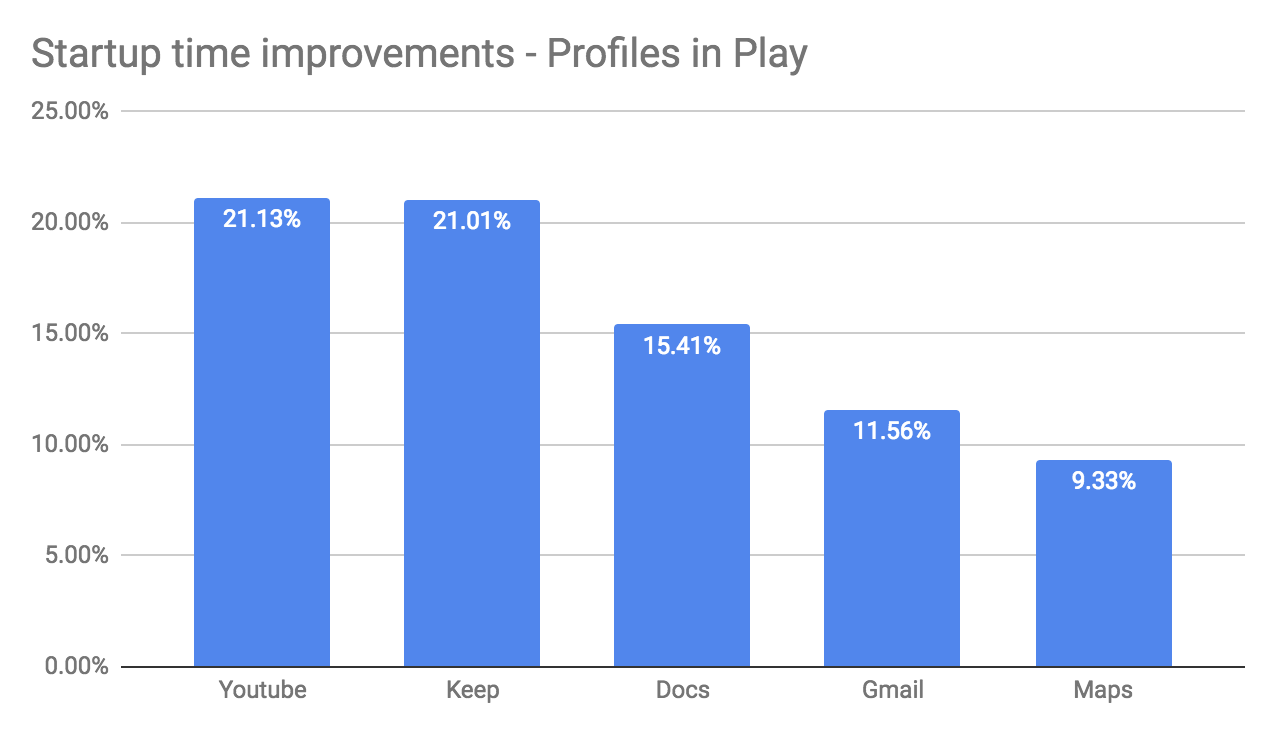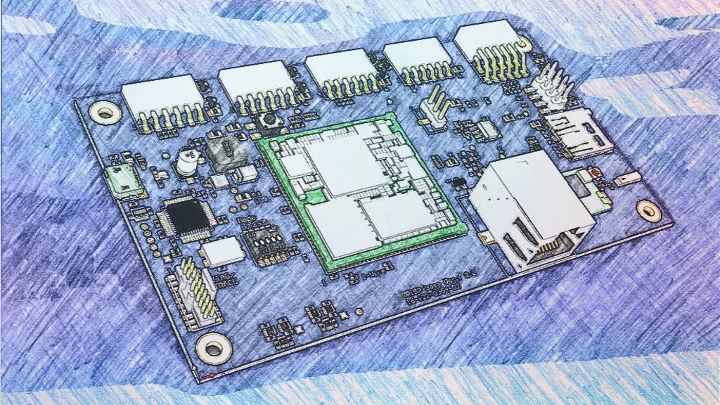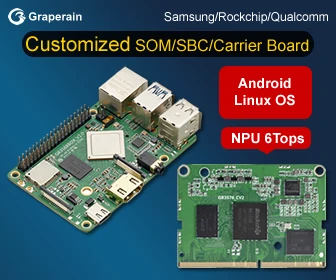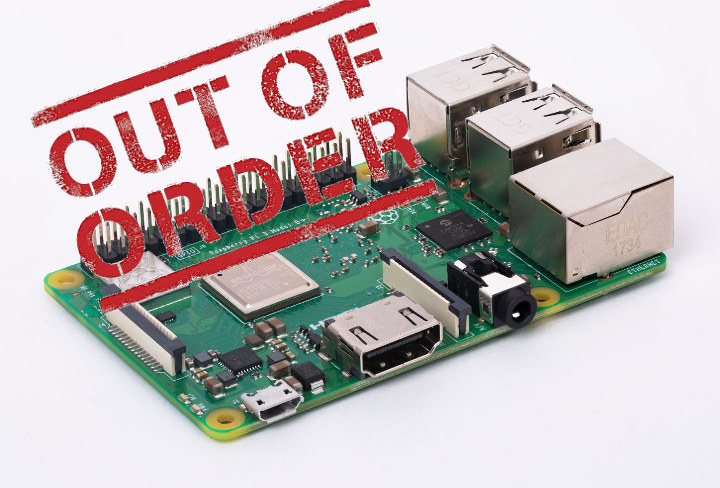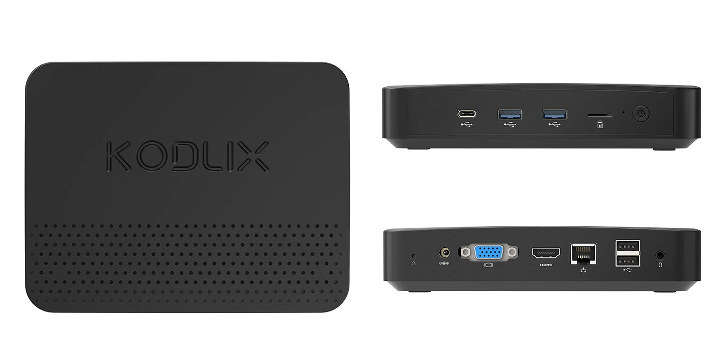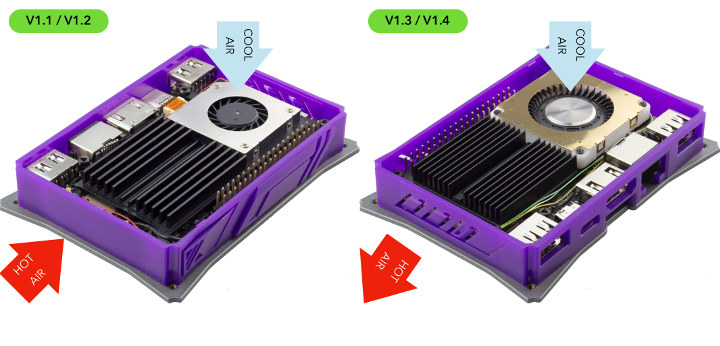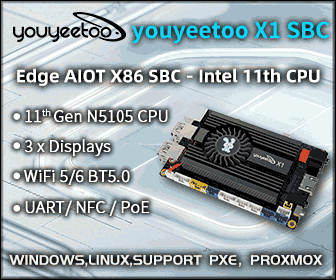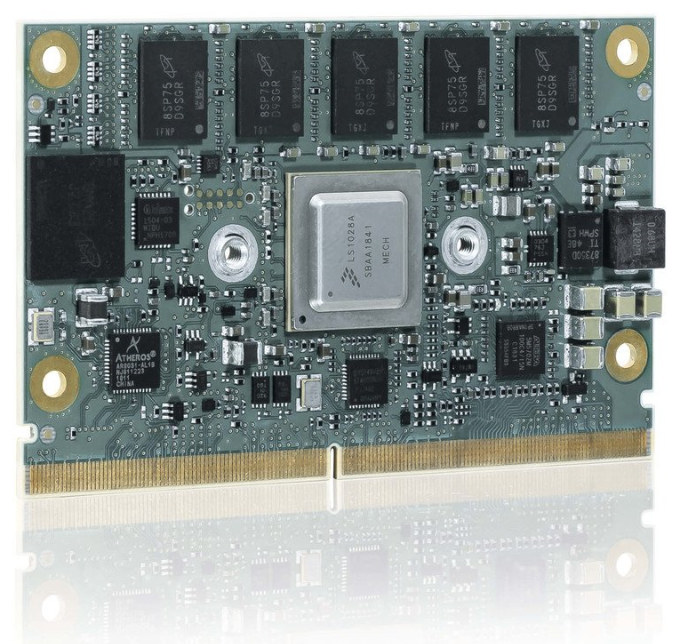Google has just announced the first public release of Android Q dubbed “Beta 1”- for Pixel devices only – as well as the corresponding preview SDK for developers. Android Q is said to bring additional privacy and security features for users, enhancements for foldables, new APIs for connectivity, new media codecs and camera capabilities, NNAPI extensions, Vulkan 1.1 support, faster app startup, and more. What’s new in Android Q Privacy protections improvements More control over location with multiple options to “allow all the time”, “allow only while the app is in use” (e.g. not while running in the background), and “deny” Users will be able to control apps’ access to the Photos and Videos or the Audio collections via new runtime permissions Android Q will prevent apps from launching an Activity while in the background, relying on high-priority notifications instead Access to non-resettable device identifiers, including device IMEI, serial number, […]
GRiSP 2 Board Targets Embedded Erlang & Elixir Development (Crowdfunding)
Erlang is described as a programming language used to build massively scalable soft real-time systems with requirements on high availability, and used in telecoms, banking, e-commerce, computer telephony and instant messaging. Elixir is a dynamic, functional language designed for building scalable and maintainable applications that leverages the Erlang VM, known for running low-latency, distributed and fault-tolerant systems. Elixir is used in many types of applications from higher-level web development to the embedded software domain, and Peer Stritzinger designed GRiSP board especially for the latter in 2017. He’s now back with GRiSP 2 featuring an NXP i.MX 6ULL SoM running Linux and RTEMS (Real-Time Executive for Multiprocessor Systems) RTOS. GRiSP 2 board is comprised of a system-on-module and baseboard with the following specifications: System on Module SoC – NXP iMX6UL Arm Cortex-A7 @ 696 MHz, 128 KB L2 cache, with TRNG, Crypto Engine (AES/TDES/SHA), Secure Boot Memory – 128 MB DDR3 […]
FOSSASIA 2019 Schedule – March 14-17
As its name implies, FOSSASIA is a Free and Open Source Software event taking place every year in Asia, more specifically in Singapore. I first discovered it last year, and published a virtual FOSSASIA 2018 schedule last year to give an idea about the subjects discussed at the event. It turns out FOSSASIA 2019 is coming really soon, as in tomorrow, so I’m a bit late, but I’ll still had a look at the schedule and made my own for the 4-day event. Thursday – March 14, 2019 10:05 – 10:25 – For Your Eyes Only: Betrusted & the Case for Trusted I/O by Bunnie Huang, CTO Chibitronics Security vulnerabilities are almost a fact of life. This is why system vendors are increasingly relying on physically separate chips to handle sensitive data. Unfortunately, private keys are not the same as your private matters. Exploits on your local device still have […]
Raspberry Pi Suddenly Not Working? You May Have to Repair your microSD Card
Automatic updates are great because they keep your system up-to-date with the latest features and/or security fixes. That’s as long as the firmware is not messed up of course, as Bootlin and others found out when they discovered their Raspberry Pi board(s) had become inaccessible after an ill-fated Raspbian update. What happened is that raspi-copies-and-fills package, which implements optimized low-level memory functions for the ARM processor, was updated on March 11th, and the update somehow made some programs completely fail to run. This explains why Bootlin guys were unable to access their Raspberry Pi over SSH. The fix is simple, as long as you have physical access to your Raspberry Pi’s micro SD card, remove it from the board, and insert it into your computer, and…: Repair the rootfs partition with
|
1 |
e2fsck -f /dev/mmcblk0p2 |
Delete etc/ld.so.preload Unmount the micro SD card, and reinsert it into your Raspberry Pi board. If you’ve installed […]
KODLIX GN41 Gemini Lake Ubuntu Mini PC Sells for $215
Most Intel mini PC ships with Windows 10, so when we see models shipping with a Linux distribution such as Ubuntu we like to point those out. Recently we covered MINIX NEO-Z83-4U Ubuntu 18.04 mini PC that comes in a well designed and passively cooled enclosure, but also a relatively underpowered Intel Atom x5 processor, and geared towards business use cases such as digital signage player or thin client. KODLIX GN41 is another Ubuntu mini PC that would make a decent entry-level desktop thanks to an Intel Celeron N4100 Gemini Lake processor, 8GB RAM, and 64GB eMMC flash that can be complemented with your own 2.5″ hard drive or SSD. KODLIX GN41 specifications: SoC – Intel Celeron N4100 quad core processor @ 1.10/2.40 GHz with Intel UHD Graphics 600; 6W TDP; 4.8W SDP System Memory – 8GB DDR4L RAM Storage – 64 GB eMMC flash flash; 2.5″ SATA slot for […]
Khadas VIM2 v1.4 SBC Gets Bluetooth 5, Thermal Improvements, a Larger SPI Flash
Announced in summer of 2017, Khadas VIM2 was the first Amlogic S912 development board, and I had the chance to review the board with a dual DTV tuner add-on board shortly after launch, eventually explaining how to use VIM2 as a live TV streaming server in Android. Shenzhen Wesion has however recently launched Khadas VIM2 v1.4 with various improvements they neatly describe in a PDF document. Before I go through the main changes, I’d like to remind readers there are three versions of Khadas VIM2 (v1.2) boards: VIM2 Basic – 2GB DDR4, 16GB eMMC flash, Ampak AP6356S wireless module with 802.11 b/g/n/ac WiFi 5, and Bluetooth 4.1 connectivity VIM2 Pro – 3GB DDR4, 32GB eMMC flash, Ampak AP6359SA wireless module with 802.11 b/g/n/ac with RSDB and Bluetooth 4.2 connectivity VIM2 Max – 3GB DDR4, 64GB eMMC flash, Ampak AP6359SA wireless module with 802.11 b/g/n/ac with RSDB and Bluetooth 4.2 connectivity […]
Kontron SMARC-sAL28 System-on-Module Supports ECC Memory, Up to 5 TSN Ethernet Ports
Many systems-on-module are equipped with one Gigabit Ethernet transceiver / PHY, but NXP LS1028A powered Kontron SMARC-sAL28 SoM is equipped with two Gigabit Ethernet PHY, and can optionally support up to 5 TSN-capable Gigabit Ethernet ports directly from the controller thanks one PCIe line that can be used as a QSGMII (Quad Serial Gigabit Media Independent Interface) port. Furthermore, the module comes with up to 4GB non-ECC or ECC memory. “What is TSN?” you may ask. It stands for “Time-Sensitive Networking“, provides distributed time synchronization and deterministic communication using standard Ethernet networks for applications such as distributed synchronized measurements, coordinated distributed data logging, next-generation computer numeric control machining, automotive networks, and more as explained on National Instruments website. But let’s go back to Kontron SMARC-sAL28 system-on-module with the hardware specifications: SoC – NXP LS1028A dual Arm Cortex A72 processor, 3D GPU System Memory – Up to 4GB DDR3L ECC or […]
Cost of Mobile Data Around the World
The price of products often vary around the world due to taxes, regulations, and cost of living. In many cases, that’s just a few tens of percents, but in some others the price may vary a lot more, as in many folds. For example, medicines are usually way more expensive in developed countries – and harder to buy -, and based on a study by Cable.co.uk, the price of 1GB mobile data varies massively across the world with India having the cheapest average cost of $0.26 US, and Zimbabwe the highest at $75.20. Price varies a lot even for neighboring countries. So if you live in Geneva in Switzerland where the average price for 1GB is $20.22, it may pay off to get signal from France (if possible) where the average cost is only $2.99. One should bear in mind that determining the average price of 1GB of mobile data […]


